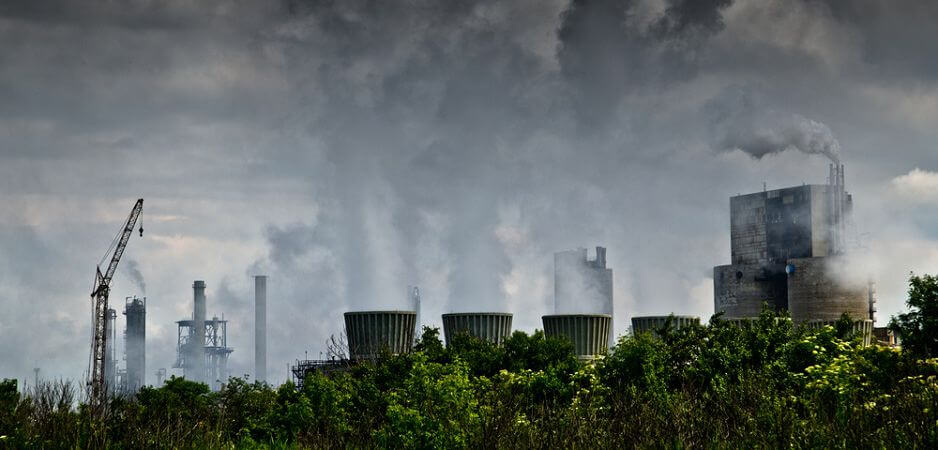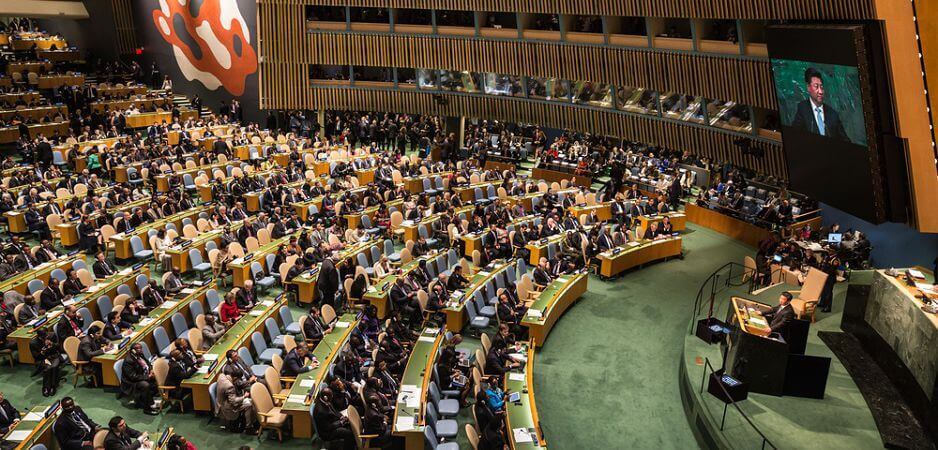Dramatic decline in insect populations and millions of people dying of pollution are wake up calls to transform the global economy.
It seems the blood never dries in the country of Saddam Hussein. Even before the Islamic State has been entirely defeated, Iraqi forces backed by Shia militias have attacked the Kurds. This week, Iraq’s Baghdad-based government has taken over Kirkuk in the name of protecting national unity. The US has come out in support of a united Iraq and very kindly advised both parties to sort out their issues in accordance with the Iraqi constitution, which a young Harvard man helped draft in an Americano version of mission civilisatrice. That mission does not seem to be going splendidly well and yet another conflict has broken out in Iraq.
Also this week, secrets of conflicts from the past have emerged to embarrass the Americano spiel of promoting liberty and democracy. The BBC reports that Pablo Neruda, the magical Chilean poet, did not die of prostate cancer in 1973. It turns out that the Secret Service poisoned him two weeks after General Augusto Pinochet’s successful military coup. Pinochet was a close ally of the US and the Central Intelligence Agency supported the Chilean dictator strongly during the Cold War. Milton Friedman and his Chicago Boys advised this darling of the CIA to arguably create a new model for Latin America.
As if revelations about Chile were not enough, details emerged about massacres in Indonesia during the 1960s. As per the BBC, between 500,000 and 3 million people were killed between 1965 and 1966 in one of the worst massacres of the 20th century. Indonesia was a Cold War ally and Washington maintained a deafening silence despite intimate knowledge of what was going on. The military and Islamist groups conducted operations to “completely clean up” the Communist Party and leftist groups, which occurred precisely when the US was wreaking havoc in Vietnam.
In Europe, three major developments took place this week.
First, Austria elected 31-year-old Sebastian Kurz to the chancellorship. He follows Emmanuel Macron and Justin Trudeau to emerge as the third young national leader. The People’s Party will replace the Social Democrats in power, but many attribute its success to stealing the clothes of the Freedom Party, a far-right party that takes a strong line against immigrants. Kurz promised “to shut down migrant routes to Europe, cap benefit payments to refugees, and bar immigrants from receiving benefits until they have lived in Austria for five years.”
Second, Spain suspended Catalonia’s autonomy, deepening the country’s constitutional crisis. Catalan leader Carles Puigdemont had threatened to declare independence unless the Spanish government negotiated with him. Madrid holds the referendum that Puigdemont organized on October 1 to be illegal and, like Baghdad, has stepped in to uphold national unity.
Third, an investigative journalist was assassinated in Malta after accusing senior politicians of receiving kickbacks. Daphne Caruana Galizia was spectacularly killed by a car bomb. By shining a light on corruption in Maltese politics, she had taken on the high and mighty in her island country, including the prime minister.
To the east, China staged its Communist Party Congress. President Xi Jinping opened the congress, which takes place once in five years, with a three-and-a-half hour speech. Seasoned observers said that the congress is a coronation for Xi, and the BBC remarked his speech spelled power.
Yet it is not politics, but the environment that takes center stage this week. Two pieces of news are worthy of attention. First, the number of flying insects has declined dramatically. Second, research by The Lancet found that “pollution is the largest environmental cause of disease and death in the world today, responsible for an estimated 9 million premature deaths.”
FRAGILE ECOSYSTEMS
Scientists have long suspected that insects are dying off. It turns out that they are right. In Germany, research at more than 60 protected areas suggests that the number of flying insects has dropped by 75% over the last 27 years.
It is important to remember that Germany is a country that is far more environmentally conscious than the US or India. Falling populations of bees, butterflies, moths and other flying insects is an alarming phenomenon. Scientists observed this decline regardless of habitat, land use and the weather. They do not quite know the causes for this phenomenon. However, they point out that this finding is “even more worrying given that it was happening in nature reserves, which are meant to protect insects and other living species.”
 Hans de Kroon of Radboud University supervised the research and remarked that the modern agricultural landscape is “a hostile environment” for insects. In his memorable words, “it’s a desert, if not worse.” The decline of insects in farmland has been well documented. However, the fact that this decline has been happening in adjacent nature reserves is a big surprise.
Hans de Kroon of Radboud University supervised the research and remarked that the modern agricultural landscape is “a hostile environment” for insects. In his memorable words, “it’s a desert, if not worse.” The decline of insects in farmland has been well documented. However, the fact that this decline has been happening in adjacent nature reserves is a big surprise.
The insects are canaries in coalmines. Their decline has implications for entire ecosystems. They provide a food source for many birds, amphibians, bats and reptiles. Plants rely on insects for pollination. If insect numbers go down, so will numbers of other species. The October 30, 2016, edition of The World This Week examined the overall decline of 58% in vertebrate population sizes from 1970 to 2012. Falling insect numbers are further confirmation of the fact that the sixth mass extinction of plants and animals is gathering even more pace.
At the heart of the matter are human consumption and the global economy. If everyone wants quality furniture, then it is hard to see how rainforests will remain standing. Similarly, the mad dash for growth that is dogma for most economists reduces insects or vertebrates to unquantifiable externalities. As many have pointed out multiple times in the past, infinite growth despite finite resources is madness.
The dogma of our age is that capital must have ever increasing returns. Therefore, it must be free to flow throughout the world. Ipso facto, the wealthy must have the liberty to invest wherever they can find most profit. Friedman, a midget cheerleader in short skirts for Pinochet, took the view that national parks should be privatized. If the public found them of value, then they would pay for the parks. He believed in a singularity of value. Everything, including perhaps the worth of a human soul or the health of the planet, can be measured in monetary terms.
The system championed by Friedman now holds sway. In this age of unfettered capitalism, inequality has soared to record highs and the environment is suffering extraordinary degradation. In April, Philip Fearnside observed in the Yale Environment 360 how the deforestation in Brazil’s Amazon is on the rise again. In 1995, a record “11,200 square miles — an area the size of Belgium — fell to loggers, cattle ranchers, and farmers.” After that year, deforestation continued but the annual rate fell dramatically. In 2012, a mere 1,700 square miles were wiped out. Since then, the rate of deforestation has risen and 2016 witnessed a 29% increase.
Landowners, soy producers, cattle farmers and other economic players who are meeting the rising demand of a global market have pushed for the “development” of the Amazon. After all, if Americans could kill the buffalo and put the prairie under the plough, why should Brazilians not follow their lead? Besides, declining prices of commodities such as soy and beef are putting enormous pressure on beleaguered Brazilian farmers. To add to their woes, the real has risen by 80% relative to the dollar. These farmers produce for the global market. Therefore, their earnings are in dollars while their expenses are in real. As their margins become thinner, they are compensating through economies of scale. Hence, farmers are clearing forests and expanding operations to boost revenues in times of trouble.
Of course, old motives to cut down forests remain. Add to it a corrupt market-friendly government led by the wily and vicious Michel Temer. The May 15, 2016, edition of The World This Week predicted a bleak future for Brazil under President Temer. Sadly, that prediction has proved to be true. Temer has removed environmental restrictions. Blairo Maggi, his minister for agriculture, is Brazil’s largest soybean producer. In 2005, Greenpeace gave him the “Golden Chainsaw” award for being the person who contributed most to Amazon deforestation. It is clear that global markets in soy or beef or other commodities or even goods or services are not exactly beneficial to ecosystems. Yet we live in an era of market fundamentalism in the post-1991 world where everything has a price but nothing has a value, especially fragile ecosystems.
FAILING HEALTH AND PREMATURE DEATHS
Human beings have long been a bit like an invasive species for the planet. They have plundered and ravaged for ever greater prosperity. Concerns about the environment go back to the 19th century and earlier. Victorian poet Gerard Manley Hopkins once asked what would the world be bereft of wet and of wildness. In one of his lines, he gave what continues to be a rallying cry for environmentalists: “Long live the weeds and the wilderness yet.”
However, Hopkins has been on the losing side and now it is not only insects or other vertebrates who are dying. This week, The Lancet Commission on pollution and health published its report after addressing “the full health and economic costs of air, water, and soil pollution.” Its findings are grim.
Pollution is wreaking havoc on the health of human beings, especially in low-income and middle-income countries. It is now the largest environmental cause of disease and death in the world. In fact, pollution caused 9 million premature deaths in 2015 or one in six deaths. About 6.5 million died because of air pollution. Water pollution caused an estimated 1.8 million deaths. About 92% of these deaths occurred in poorer nations, with Bangladesh and Somalia emerging as the two worst affected countries. Chad, Niger and India formed the other three in the top five. The Global Alliance on Health and Pollution has published an interactive map that brings to life the findings of The Lancet study.
For much too long, policymakers and economists have kept their eyes wide shut. In 2003, a noted paper in Human Reproduction found that traffic‐derived environmental pollutants adversely affect male fertility. The paper concluded that nitrogen oxide and lead adversely affect semen quality. A 2015 paper found that incidence of infertility has been increasing in industrial countries from 7-8% in 1960 to 20-35% nowadays. It found that, “over the past 50 years, human sperm concentration decreased drastically from 113 to 61 million/milliliter.” This is an almost 50% decrease and has huge implications for the future of humanity.
T.S. Eliot once proclaimed: “Birth, and copulation, and death. That’s all the facts when you come to brass tacks.” Yet policymakers and economists have managed to ignore these very facts in their theology of development and growth. Tomáš Sedláček, the superstar Czech economist, said it best: “[G]reed is always Janus-faced. It is an engine of progress but it’s also the cause of our collapse.” Most of us want stuff. Americans with their sprawling houses, big cars and iconic freeways tend to want the most stuff. That is why their carbon dioxide (CO2) emissions per capita are so inordinately high. Among the top 20 CO2 polluters in 2011, only Saudi Arabia and Australia beat the US.
As this author argued on October 30, 2016, we have to tackle and tame the consumerist society championed by Harvard and Hollywood. Ever increasing demand for diamonds and timber will only lead to more pollution and fewer trees not only in Africa and Brazil, but also the entire planet. Corporations with their quarterly time horizons have no incentives to curb pollution or plant trees. Their goal is to sell us stuff we might not need. Chief executive officers who fail to deliver growth and profits fall by their swords. Yet Sedláček is right in arguing that the equation “more is better” no longer adds up. It is time to jettison Friedman’s dogma and start living a bit more frugally not only for trees, insects and vertebrates, but also for our own sake.
*[You can receive “The World This Week” directly in your inbox by subscribing to our mailing list. Simply visit Fair Observer and enter your email address in the space provided. Meanwhile, please find below five of our finest articles for the week.]
Social Effects of the Qatar Crisis
The social effects of the Qatar crisis make it increasingly difficult to resolve.
While the political dimensions of the four-month-old Qatar crisis have been analyzed at length — and largely echo those of the Gulf Cooperation Council’s (GCC) 2014 rift — there has been less scrutiny of the row’s social impact. The social ramifications mirror the ongoing political strife, yet are likely to outlast the crisis, and thus dim the prospects for any resolution. Furthermore, because this clash is so remarkably public, it has become nearly impossible for nationals not to take sides. During past GCC clashes, the ultimate unity of the Gulf states has been highlighted thanks to family, tribal, religious and historical ties. Yet amid the current crisis, political intransigence has underscored the social differences, particularly national identities. The outpouring of nationalist sentiment in the Gulf certainly predates the current crisis, yet has been highlighted recently because of it… Read more
Time Limits Risk a Brexit Crash
Rigid timelines could lead to a Brexit disaster, says former Irish Prime Minister John Bruton. Scope and time are needed for creative thinking.
In his book Fateful Choices, which describes how country after country tumbled into what became the Second World War, British historian Ian Kershaw wrote: “The fateful choices that were made were not predetermined or axiomatic. But they did reflect the sort of political system that produced them.” A global war was not anyone’s preferred option, but a combination of ideology, a fear of being encircled or preempted, and miscalculation of the intentions or reactions of others gave the world the most destructive conflict in human history. There are similar blind forces at play in the Brexit talks. The current political system in the United Kingdom, and the anxieties and obsessions it has generated, determine the British position on Brexit. This expresses itself in an artificially… Read more
The West Still Matters
Eastern actors are likely to become more Western rather than building an alternative system.
The end of the Cold War saw an era of systemic redefinition, undermining the friend-enemy dichotomy that shaped the international system for half a century. The path of the American century has since been put in jeopardy by an initial — and troubled — period of US-led unipolarity and then by the growth of new powers in the East. Yet the expected emergence of an “Asian century” is more present than ever. As Michael Beckley, a research fellow at the Harvard Kennedy School, notes, “[T]he ‘rise of China’ has been the most read-about story” of the 21st century. This shows the magnitude of a debate that has rapidly become mainstream among academics and the general public. Are we facing a progressive West-to-East power shift within the international community? The assumption behind the emergence of an Asian… Read more
Taking the Overseas Blinders Off Corporate Governance
Above-board corporate behavior in the UK does not guarantee ethical conduct elsewhere.
In its annual Good Governance report, the Institute of Directors (IoD) assesses the United Kingdom’s largest listed companies against indicators that include board effectiveness, audit and risk accountability, remuneration, shareholder relations and stakeholder relations. Ironically, the IoD index’s top performers often come from the alcohol and tobacco industries. This year’s report gave pride of place to the distiller Diageo and the 2016 winner was British American Tobacco (BAT). The IoD’s standards may be appropriate for how these companies behave in London. In Kinshasa, Kampala and Juba, though, the praise of BAT surely raises eyebrows. As the rest of the world has learned over the intervening months, above-board corporate behavior in the UK does not guarantee ethical conduct elsewhere. BAT and the tobacco industry more broadly are cases in point. The Guardian revealed in a series of… Read more
The Ugly Truth Behind Working at a Restaurant
Restaurant workers deserve fair wages and a safe working environment.
Behind the warm smile of your favorite restaurant’s waitress and the friendly welcome of the host lies a dark truth about how they earn their wages. The fortunate ones from the seven states of California, Oregon, Washington, Nevada, Montana, Alaska and Minnesota get paid the state minimum wage. Any tips they earn is additional income, the way it should be. In the remaining 43 of America’s 50 states, the unfortunate workers rely on tips to cover the difference between the subminimum cash wage — mandated by the federal Fair Labor Standards Act (FLSA) —and the state minimum wage. At a quick glance, the established business practice in these 43 states may sound fair, even business-friendly. A careful analysis of the situation will expose the harsh facts of the restaurant industry. The FLSA-mandated subminimum wage is a paltry $2.13 per… Read more
The views expressed in this article are the author’s own and do not necessarily reflect Fair Observer’s editorial policy.
Photo Credit: Balu / Shutterstock.com
Support Fair Observer
We rely on your support for our independence, diversity and quality.
For more than 10 years, Fair Observer has been free, fair and independent. No billionaire owns us, no advertisers control us. We are a reader-supported nonprofit. Unlike many other publications, we keep our content free for readers regardless of where they live or whether they can afford to pay. We have no paywalls and no ads.
In the post-truth era of fake news, echo chambers and filter bubbles, we publish a plurality of perspectives from around the world. Anyone can publish with us, but everyone goes through a rigorous editorial process. So, you get fact-checked, well-reasoned content instead of noise.
We publish 2,500+ voices from 90+ countries. We also conduct education and training programs
on subjects ranging from digital media and journalism to writing and critical thinking. This
doesn’t come cheap. Servers, editors, trainers and web developers cost
money.
Please consider supporting us on a regular basis as a recurring donor or a
sustaining member.
Will you support FO’s journalism?
We rely on your support for our independence, diversity and quality.











